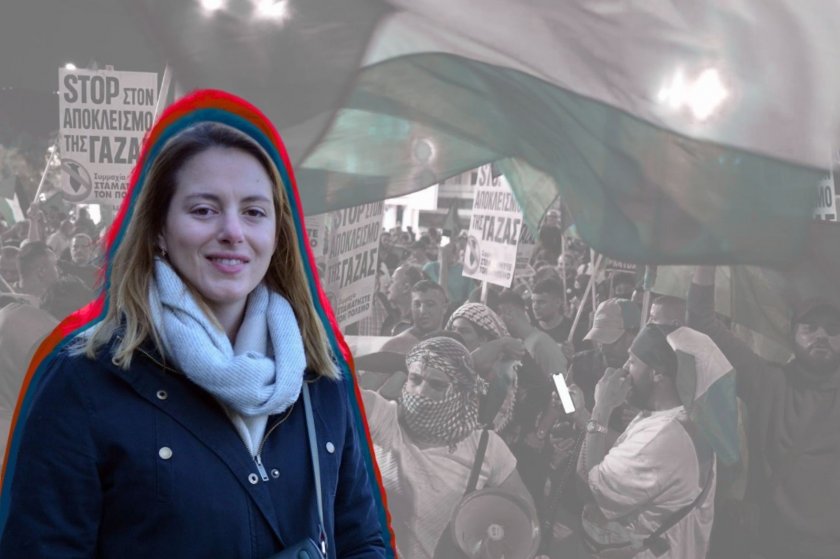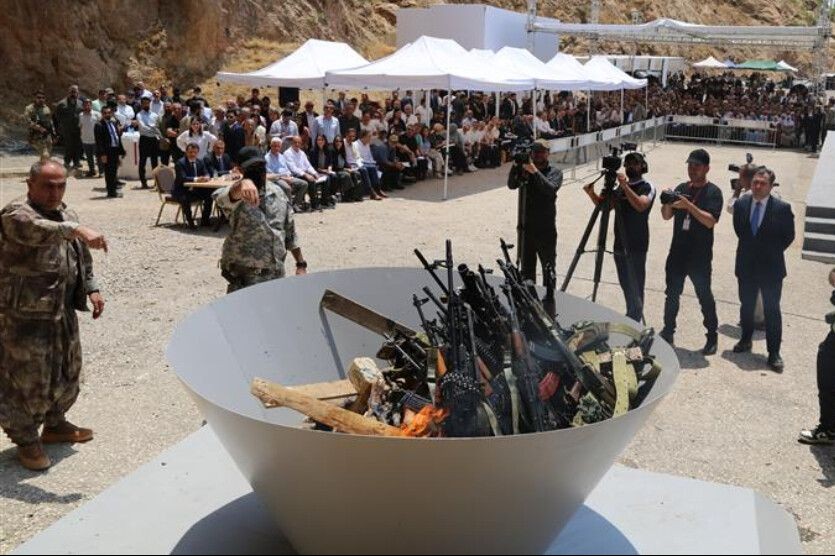The 'external enemy' tactic has a limit

Fatih Polat

Fotoğraf: TCCB / Murat Çetinmühürdar | AA
The July 15 coup attempt provided a favourable climate for the Erdoğan government to fortify the political arena around the 'Yenikapı spirit' move. The known frailty of the parliamentary opposition also made it easier for Erdoğan’s tactic to work.
However, lthings are not always as smooth sailing as a government would like it to be. Over time, the groundwork for this move eroded. And while the support of the AKP-MHP alliance has weakened, the propaganda to dissolve the support given to the opposition in the last elections also failed. The move to repeat the Istanbul elections, using state power, hegemony in the media and the ruling population in the Supreme Election Committee (YSK), in a completely unlawful manner, also ended in failure.
The endless problems within the country and the operational justifications made for involvement in Syria and Libya have reached their limit. The strategy of trying to become a regional power by taking advantage of the contradictions between Russia and the United States and converting these moves into domestic politics also began to fail after a certain point.
The government’s loss of support, confirmed not only in the public opinion polls commissioned by the opposition but also in government polls, and with the state of the economy getting worse each day, forced the government onto shaky ground.
Adding the call of 10 Western ambassadors for Osman Kavala’s release to the withdrawal of the country’s largest capital organisation TÜSİAD from government groundwork left Erdoğan face to face with two options. Either he would have to comply with the decisions of the ECtHR and the calls of the Council of Europe regarding Kavala and Selahittin Demirtaş - as a requirement of the EU process in which Turkey is involved - and therefore accept defeat.
Or he would continue to lead his government by activating the allure of a ‘national struggle’.
He chose the second.
On December 19, 2016 - at the opening of a photography exhibition at the Contemporary Arts Center in Ankara - five years after the murder of Russian Ambassador Andrey Karlov, we were once again presented with the statement that ‘the ambassador will perish if necessary’.
President Erdoğan announced that he had instructed the Minister of Foreign Affairs to declare the 10 Western ambassadors who called for Kavala’s release to be declared ‘persona non grata’.
It will be remembered that our colleague Deniz Yücel, the Turkish correspondent for the Die Welt newspaper - who is both a Turkish and a German citizen - was detained on 14 February 2017. Mainstream newspapers flashed words such as ‘agent’ and ‘traitor’ in their headlines to describe him. Two days before the constitutional amendment referendum on 16 April 2017, President Erdoğan answered a question about Deniz Yücel’s extradition to Germany in a joint broadcast by Beyaz TV and TGRT Haber.
He said: “It will not happen under any circumstances, never as long as I am in this office”. [Yücel] is a terrorist spy.”
Deniz Yücel was released on 16 February 2018 following Germany’s diplomatic moves based on pressure, instead of the tactics of bellowing out statements as practised by Erdoğan. Yücel was then transported to Germany on a private plane.
Let’s put aside the fact that Erdogan’s recent changes in the Central Bank resulted in exchange rates soaring and the value of the Turkish lira further falling, as well as the consequences that followed this. Let's put aside the TÜGVA documents. Let’s put aside the claims of Sedat Peker, a former companion of the government. Let’s just believe that the calls of the 10 Western ambassadors regarding Kavala are against our ‘national interests’ and let’s focus only on it as Erdogan wants.
So, while the judicial process continues for Kavala - a person who was arrested three times, released twice and kept imprisoned for four years - can the insistence of the politician sitting in the highest authority in the country to discuss this be read as an effort to protect the ‘independent judiciary’ against foreign intervention?
If he believes that the anti-imperialist accumulation in the country provides a suitable ground for their ‘national struggle’ manipulations at a time when things are not going well with Russia and the relations with the US and the EU are being pushed from one crisis to another, he is wrong.
People relate to politics not only through discourses, but also through their own experiences and experiences.
At most, this last process may be telling us: The ambassador will die for the survival of the power, but the ‘external enemy’ tactic also has a limit!
Forwarding to the next article...
10 seconds remaining





Follow Evrensel